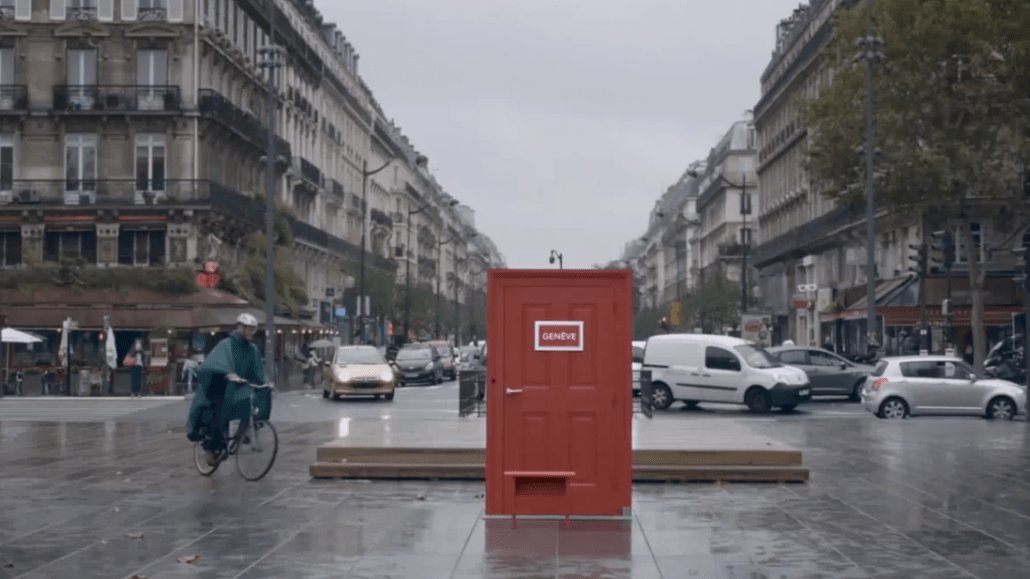
The French National Railway Company (SNCF), France’s national state-owned railway company, wants to remind people that so many great European cities are just next door — literally.
SNCF, with the help of agency TBWA\Paris, created a cool outdoor digital campaign to virtually transport Parisians to cities like Milan and Brussels through actual, physical doorways that were placed in various public areas around Paris for two days this past September. The doors opened up to special digital flat screens broadcasting live streams from different European cities.
For example, if a passerby were to open the door to Barcelona, she’d be able to see and interact with a Spanish dance hip-hop crew in Port Vell Square. Open the door to Milan and you could interact with a mime in Cathedral Square (though we’re not sure, exactly, how that’s an enticement).
This isn’t the first campaign of its kind. San Pellegrino’s “Three Minutes in Italy” let users from all over the world take a stroll through Sicily via a Facebook app and livestreaming, roving robots. Just last month Tourism Victoria ran a “Remote Controlled Tourist” campaign that let Facebook users vicariously experience Melbourne by remotely controlling two actual tourists in Melbourne fitted with helmet cams.
Watch the video to see the SNCF campaign in action:
More in Marketing

YouTube’s upmarket TV push still runs on mid-funnel DNA
YouTube is balancing wanting to be premium TV, the short-form powerhouse and a creator economy engine all at once.

Digiday ranks the best and worst Super Bowl 2026 ads
Now that the dust has settled, it’s time to reflect on the best and worst commercials from Super Bowl 2026.

In the age of AI content, The Super Bowl felt old-fashioned
The Super Bowl is one of the last places where brands are reminded that cultural likeness is easy but shared experience is earned.





